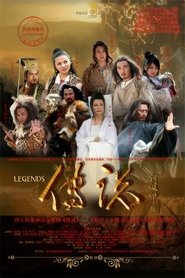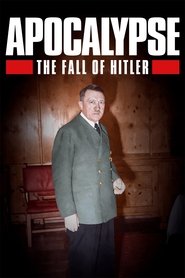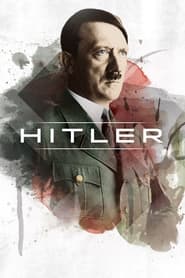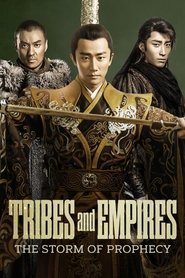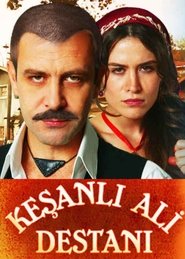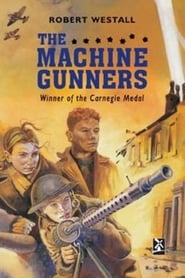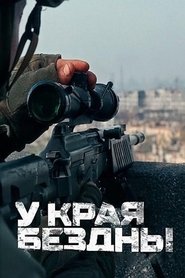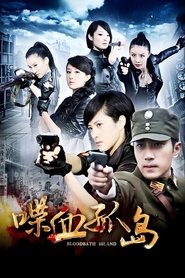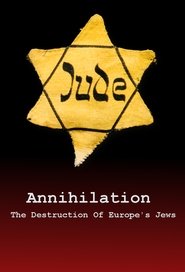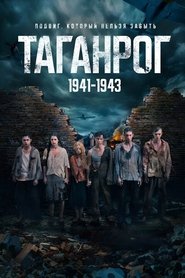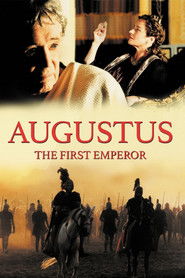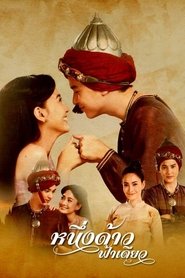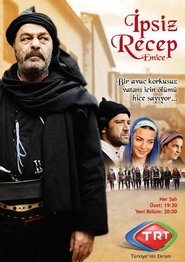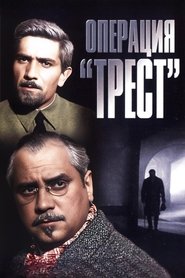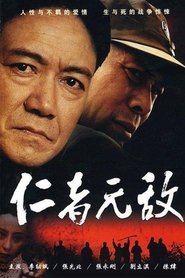Popular War Politics TV Series on Pantaflix - Page 56
-
Ancient Legends
2010
-
Apocalypse: The Fall of Hitler
2023
star 7.8Summer 1943: Hitler engages in a decisive battle in Kursk to win the war in the East. This is without counting on the pugnacity of the Red Army and the Allied intervention in the West. Month after month, the noose tightens on the Nazi tyrant who refuses to admit defeat and precipitates his country in its fall. -
Hitler: The Rise and Fall
2016
star 6.1Using the latest research across the course of Hitler’s life, world-renowned experts investigate the man behind the monster and pinpoint the key moments in his meteoric rise and ultimate downfall. -
Pearl Harbor
2006
Pearl Harbor
2006
Series documenting the events leading up to, during and after the attack on Pearl Harbor. -
Tribes and Empires: Storm of Prophecy
2017
star 4.4Muyun Sheng, born from a spirit mother, is the unfavoured sixth son of the reigning Emperor Ming of Duan. Discovering an ancient painting by chance, he is captivated by the spirit locked inside (Panxi), and together, they promise to search for the most beautiful places on Earth. Muru Hanjiang, friend of Muyun Sheng, is the son of General Muru Shuo, famous for conquering the Eight Tribes of Han Province. Many years later, the descendant of the Eight Tribes Shuofeng Heye sows discord between the Muyun and Muru families. Only when the friendship and loyalty between these two families is rebuilt will the Duan Dynasty be safe from invasion by the Eight Tribes. This drama tells of the loyalty, friendship, enmity and romance between the young descendants during the twilight years of the Duan Dynasty. -
Keşanlı Ali Destanı
2011
-
The Machine Gunners
1983
The Machine Gunners
1983
star 6.1BBC adaptation of Robert Westall's acclaimed novel. In a small seaside town in northern England during World War II, a young boy discovers the remains of a German aircraft - with the dead pilot still inside. -
At the Edge of the Abyss
2024
star 8.2March 2022. The Somalia battalion, as part of the main forces, was sent to storm fortified Mariupol in order to ensure the possibility of an offensive by the Russian Armed Forces. On the outskirts of the city, no one yet knows the scale of the genocide to be perpetrated by Russian soldiers. -
Bloodbath Island
2013
Bloodbath Island
2013
A team of elite female agents, each with a troubled past, undergo brutal training on a remote island to prepare for high-risk missions against Japanese forces. Led by a tough captain and guided by a skilled instructor, they face danger head-on in their fight for their country. -
World War II: When Lions Roared
1994
star 6.5A 1994 war television miniseries which portrays Roosevelt, Churchill, and Stalin as they maneuver their countries through several of the major events of World War II - such events include the Blitz, Operation Barbarossa, the bombing of Pearl Harbor, the North African Campaign, the Allied invasion of Italy, and concluding with the Tehran Conference. -
Annihilation
2014
Annihilation
2014
star 5.7Seventy years after the liberation of Auschwitz, we have not finished accounting for the destruction of Europe's Jewish population. One question remains today: not why, but how was the Shoah possible? -
Taganrog
2025
-
Augustus: The First Emperor
2003
star 4.9Old and ill, Augustus, the man who changed the fortunes and destiny of an empire by completing Julius Caesar's project, recounts the two most important phases of his life: his rise to power and his fight against the pressure of his family. -
One Land, One Sky
2018
One Land, One Sky
2018
During King Ekkathat’s reign, the mischievous Mang Mao repeatedly escapes arranged dates, only to clash with Sri Khan Thin—unaware he is actually Khan Thong, a young man in disguise investigating his parents’ mysterious deaths—leading to chaos, hidden identities, and unexpected encounters. -
İpsiz Recep
2008
İpsiz Recep
2008
-
Weapons of War - A History of Military Tools and Machines
2006
This is a unique, mind-blowing series of 52 individual war documentaries. Each volume provides an original program packed with combat action and expert in-depth commentary and features spectacular footage from 20th Century's key conflicts. -
Operation 'Trust'
1968
Operation 'Trust'
1968
star 9The series is about the operation code-named "Trest", which under the leadership of F.E.Dzerzhinsky was carried out by the VChK to identify and eliminate the counter-revolutionary and monarchist underground on the territory of the USSR, associated with foreign white-emigrant organizations. -
Auschwitz: The Nazis and the Final Solution
2005
star 7.5This documentary series tackles one of history's most horrifying subjects: the Holocaust and the infamous Auschwitz-Birkenau concentration camp. -
仁者无敌
2008
仁者无敌
2008
During the Chinese Civil War, Du Xiumei leads a Red Army guerrilla group against Nationalist forces in the Silver River region. Amidst betrayal and mysterious deaths, local figure Pi Degui, with hidden loyalties, risks everything to aid the revolution and protect his comrades.
 Netflix
Netflix
 Amazon Prime Video
Amazon Prime Video
 Apple iTunes
Apple iTunes
 Apple TV Plus
Apple TV Plus
 Disney Plus
Disney Plus
 Google Play Movies
Google Play Movies
 Paramount Plus
Paramount Plus
 Hulu
Hulu
 HBO Max
HBO Max
 YouTube
YouTube
 fuboTV
fuboTV
 Peacock
Peacock
 Peacock Premium
Peacock Premium
 Amazon Video
Amazon Video
 The Roku Channel
The Roku Channel
 AMC+
AMC+
 Kocowa
Kocowa
 Hoopla
Hoopla
 The CW
The CW
 Vudu
Vudu
 Starz
Starz
 Showtime
Showtime
 PBS
PBS
 Pantaflix
Pantaflix
 FXNow
FXNow
 Tubi TV
Tubi TV
 Kanopy
Kanopy
 Comedy Central
Comedy Central
 Crunchyroll
Crunchyroll
 Microsoft Store
Microsoft Store
 Redbox
Redbox
 Sun Nxt
Sun Nxt
 ABC
ABC
 DIRECTV
DIRECTV
 Crackle
Crackle
 Fandor
Fandor
 Plex
Plex
